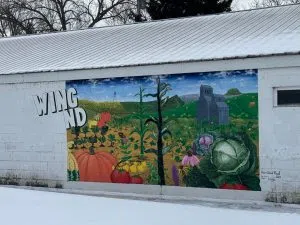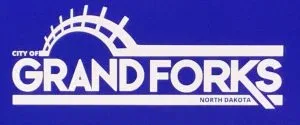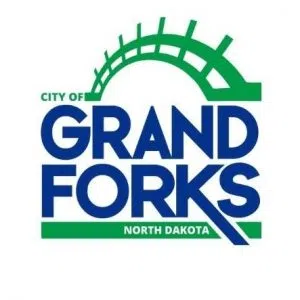
The town of Wing has never had its own city hall. (Michael Standaert/North Dakota News Cooperative via the North Dakota Monitor)
(Michael Standaert – North Dakota News Cooperative) – Transforming a deteriorating school greenhouse into a community garden and educational space. Retrofitting an old building to create a town’s first-ever city hall. Kickstarting a commercial canning facility to teach residents how to preserve summer bounties, increase access to healthy food and expand Indigenous food sovereignty.
These are just a few of what could be a cascade of potential projects to raise the livability and viability of rural communities across the state if a legislative proposal to create a permanent endowment fund is approved this session.
Sponsored by Sen. Tim Mathern, D-Fargo, Sen. Terry Wanzek, R-Jamestown, and Rep. Mike Brandenburg, R-Edgeley, Senate Bill 2097 aims to establish a $50 million Rural Community Endowment Fund to act as a permanent resource for funding projects in communities under 1,000.
At the moment, most communities of this size struggle to navigate complex grant applications or secure matching funds required by federal and state programs, leaving them outside the fence of development funding.
The majority do not have economic development entities working to secure grants and loans, which this legislation aims to address.
According to 2022 U.S. Census data, 39.5% of the state’s population resides in rural, non-metro areas.
“Some of these smaller communities don’t have the economies of scale to be able to make investments in public works or economic development,” Wanzek said.
“The idea there is to have sustainability for a long time, to be able to have a revolving fund where small communities, if they get a loan or a grant or whatever, some of that money comes back, and then that endowment will be generating new income,” Wanzek said.









